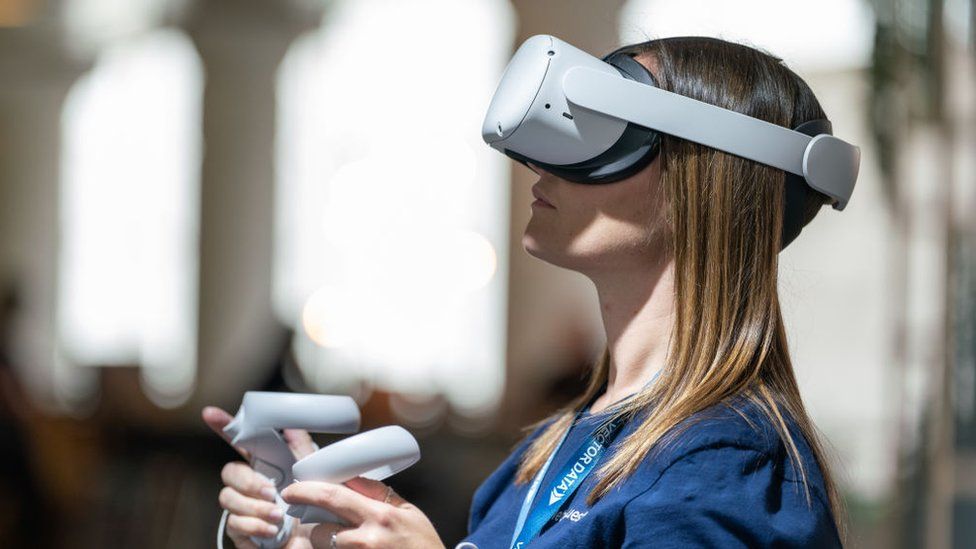-

-
-
Loading

Loading

Before ChatGPT became a hot topic in the tech world, there was a time when everyone was buzzing about the metaverse. The metaverse was envisioned as a virtual reality world that would captivate us and become a significant part of our lives. Leading the metaverse movement was Mark Zuckerberg, the tech billionaire who even changed Facebook's name to Meta in October 2021 to emphasize his commitment. Zuckerberg believed that the metaverse's key characteristic would be a sense of presence and connection with others, which he considered the ultimate goal of social technology. He claimed that in the metaverse, people could do virtually anything imaginable, displaying his ambitious vision. However, almost two years later, Zuckerberg has found himself refuting rumors that he has abandoned the metaverse concept. During an investor meeting in April, he clarified that the narrative suggesting a shift in focus away from the metaverse was inaccurate. The upcoming Meta Connect event provides Zuckerberg with an opportunity to reiterate his reasoning for redirecting the profitable social media company towards a less lucrative virtual reality venture. Yet, the financial figures regarding Meta's virtual and augmented reality division, Reality Labs, are concerning. The branch has accumulated a staggering $21 billion in losses since last year, though Meta anticipated this due to long-term investments. However, there is currently little evidence to support the belief that this significant gamble will pay off. Horizon Worlds, a game developed by Meta, is the closest the company has come to creating a metaverse. Despite claiming 300,000 monthly users, this is a minuscule number compared to the billions on Facebook and Instagram. Moreover, only a fraction of those users are actively playing the game. Reviews indicate a lack of populated environments and insufficient player numbers, often filled with children. Critics also note that the game's graphics are underwhelming, falling far short of Zuckerberg's promise of an immersive VR experience. When considering Meta's virtual reality headsets, it becomes clear that the current technology falls short of Zuckerberg's articulated vision. While the headsets have sold over 20 million units, they are still outnumbered by successful game consoles like Sony's PlayStation 5, which has sold 40 million units. Despite these realities, Zuckerberg remains committed to his endeavor to revolutionize how we live, work, and connect. VR gaming continues to be a niche interest rather than the mainstream choice for most people. However, Zuckerberg is confident that VR represents the future, acknowledging there is uncertainty surrounding his bet. During the upcoming Meta Connect event, Zuckerberg is expected to discuss Meta's new headset, the Quest 3, as well as the transition of Horizon Worlds to mobile and desktop platforms. Additionally, new AI announcements will likely be made. One thing that will undoubtedly be reiterated is that the metaverse is a long-term project and its full potential is yet to be realized. Despite the rest of the tech world moving on, Zuckerberg firmly believes in the metaverse, as indicated by the high financial investments made by Meta's Reality Labs. In conclusion, the metaverse still holds importance to Meta, even though the majority of the tech industry seems to have shifted its focus elsewhere.